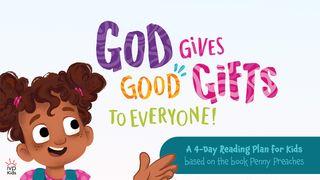See the Big Picture. Dig In. Live It Out: A 5-Day Reading Plan in 1 SamuelSample

The Big Picture
As 1 Samuel begins, Israel is a loose confederation of tribes that were sporadically under the leadership of warriors we call the “judges.” Israel had no central government and no capital city. There was no regular succession of judges. Individual judges arose and were recognized in times of crisis, as called by Yahweh, and it seems that the authority of any given judge rarely extended far beyond his own tribe. There was no temple; Israel worshiped at the Tent of Meeting, which was set up at Shiloh. The first thing we read is the account of the birth and calling of the last and greatest judge, Samuel.
Digging In
Hannah’s anguish over her inability to bear children is understandable to any woman who longs for children and cannot have them. But for an ancient Israelite, the distress was especially severe. Israel had no social safety net whatsoever. There was no provision for a pension, health care, or public assistance of any kind. If a woman’s husband predeceased her, she depended entirely on her children, particularly her sons, to provide for her in old age. Absent that, she might very well starve, and she would certainly have to beg. Charitable giving was entirely a private matter; there was no state to enforce it. When Hannah’s husband, Elkanah, asked, “Am I not better to you than ten sons?” he was not making an ego-centric claim that she should be thrilled to have such a fine husband. He was stating that he provided for her generously (he gave her a double portion). While there is no doubt that he did love her and gave her all she needed—and he did not neglect her because she was barren—from her perspective, there was still a major problem. If Elkanah predeceased Hannah, the son of Hannah’s rival, Peninnah, would be the heir of the estate. Peninnah could then eject Hannah from the household, leaving her destitute.
In addition, there was great cultural pressure for women to have children. A woman who bore no children would probably be regarded as a failure and a disgrace—especially by other women, just as men would despise a man who fled from a battle or who did not properly work his land. For Hannah, her condition meant that she had not fulfilled her role as a woman and was at risk of losing everything. We should not judge her by modern, Western standards.
We read that the priest Eli noticed Hannah because her lips were moving but made no sound (1 Sam. 1:13). We might think that she would have been expected to pray silently, with her mouth shut. In fact, it appears that people in the ancient world always prayed aloud; they did not pray in their minds alone. Thus, what was strange to Eli was that she made no audible words, and thus he thought that she was just a distraught drunk mumbling incoherently. Hannah denied that she was drunk and spoke of her great despair, implying she was so upset she could hardly make her voice work while she prayed.
Eli saw the truth in this and pronounced a blessing over her, tell- ing her she could depart “in peace.” A priest is someone who stands between God and other people to serve as an intermediary and intercessor on their behalf. As the high priest, Eli had authority from God to pronounce a blessing over people in Yahweh’s name. This did not mean that his blessings were always efficacious; he did not have a superpower. He did, however, speak as God’s representative, and Hannah received his words with faith and gratitude, and it gave her peace. In fact, God heard Hannah’s prayer and Eli’s blessing, and she became pregnant.
Hannah named her son Samuel after he was born, saying, “I requested him from the Lord.” We do not, in fact, know what the name “Samuel” means. It sounds somewhat like the Hebrew for “God heard” or for “requested,” but it does not actually mean either of these. Whatever the name meant to Hannah, she felt it was an appropriate name for a boy whom she conceived in answer to prayer.
Samuel stayed with his mother until he was weaned. In the ancient world, this could last for a long time, even until a child was between five and seven years of age. We have ancient statuary in which a standing child is nursed by his standing mother. Thus, we should not suppose that when Samuel went to stay with Eli at Shiloh, he was little more than a crawling infant.
Hannah kept the vows she had made about Samuel. First, he was a Nazirite, meaning that during the period of his vow he did not have his hair cut, and he stayed away from whatever would defile him in a ritual sense (such as touching a dead body). The Bible does not elsewhere speak of Samuel as a Nazirite; it may be that she kept him under a Nazirite vow only while he lived with her. Normally, a Nazirite vow was temporary, but we should also see Samuel as a contrast to Samson, the previous judge, who was also a Nazirite but was far less faithful than Samuel. Second, she said that Samuel would stay with Yahweh all his life. Obviously, Hannah could not control what Samuel would do when he was a grown man. What she meant was that she would commit him to Yahweh’s service as soon as possible, right after he was weaned. This was a great sacrifice on her part. By surrendering her son to service in the sanctuary, she would release him from his commitment to take care of her. If she had no other sons, she would again face the prospect of poverty. Thus, her vow was a great step of faith.
Living It Out
This passage holds several lessons for us. First, Hannah’s distress and subsequent prayer remind us that we should take our problems to God and not assume that our mundane troubles do not interest him. Hannah suffered disgrace and reproach and feared falling into poverty. We, too, should cast all our worries on God (1 Pet. 5:7). Second, Eli’s blessing over Hannah is a model for what a priest should do: Invoke God’s blessing upon other people. Some people speak of the “universal priesthood of the believer” as though it has something to do with freedom of conscience in doctrinal matters. That is not the point at all; it means that we can go directly to God on behalf of others. For Christians, the power to invoke God’s blessing on someone is not reserved to an exclusive, ordained priesthood, but it is wasted on us if we do not bless others and intercede for them. Third, Hannah’s dedication of her son to God’s service, as an act of faith, is a model for us. While we should be careful about making vows (Eccles. 5:4–5), God does desire us to step out in faith and not cling to worldly security.
Scripture
About this Plan

The Holy Spirit uses God’s Word to grow believers in their faith and increase their passion for Jesus. Break down the book of 1 Samuel into the “Big Picture” of the passage, then “Digging Deeper” into that section, and then move into “Living Out” the lessons that are taught in the passage in this 5-day reading plan.
More
We would like to thank B&H Publishing for providing this plan. For more information, please visit: http://40daysseries.net/
Related Plans

Pawprints & Prayers: Devotions for Dog Lovers

God Gives Good Gifts to Everyone

Living With a Strong-Willed Child

Dog Dad Devotions on Leadership, Loyalty and Love

The Last Half Hour: When Waiting Becomes Glory

When God Says No!

The Journey of Yes

Acts Reading Plan

A Brighter Future: A 5-Day Devotional
